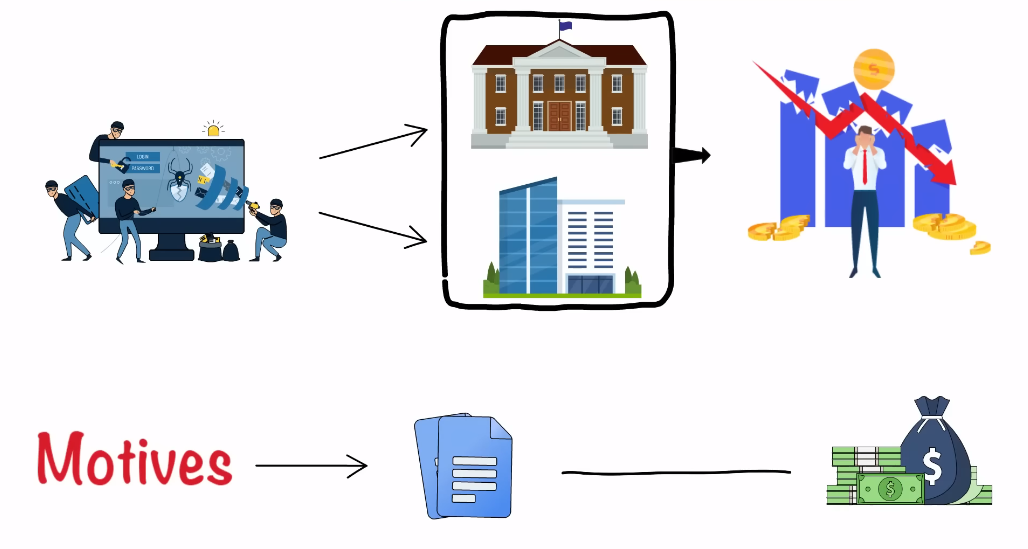Introduction
The Evolving Role Of Data In Business And Society

As data becomes more and more integral to business operations, it also becomes a valuable asset that needs to be protected. Companies are investing heavily in data security measures to safeguard their sensitive information from cyber-attacks and data breaches. The evolution of technology has made it easier for businesses to collect and analyze large amounts of data from various sources. This has led to the emergence of new roles such as Data Analysts, Data Scientists, and Chief Data Officers.
In society, the use of data has also evolved significantly over time. With social media platforms collecting vast amounts of user data, privacy concerns have become a pressing issue. Governments around the world have implemented regulations like the GDPR (General Data Protection Regulation) in Europe and CCPA (California Consumer Privacy Act) in California to ensure that individuals’ personal data is being used ethically and securely by companies.
Why Data Security Matters?

Data security is not just a matter of compliance or legal obligation, it’s also essential for protecting your business and customers’ sensitive information from potential cyber threats. Cyberattacks are becoming more sophisticated and frequent, with hackers constantly seeking ways to gain unauthorized access to personal data. A single data breach can cause irreversible damage to an organization’s reputation, and financial stability and even lead to a decline in customer trust.
In addition, data breaches can result in significant legal implications and financial penalties. Organizations that fail to comply with data protection regulations such as GDPR (General Data Protection Regulation) could face fines of up to €20 million or 4% of their global turnover per breach. As a result, investing in robust cybersecurity measures is crucial for mitigating the risks associated with cyber-attacks.
Ultimately, safeguarding your company’s most valuable asset – its data – should be a top priority for any organization that wants to thrive in today’s digital landscape. By implementing strong cybersecurity strategies, businesses can protect against potential threats while maintaining the trust and loyalty of their customers.
Threats To Data Security
The Increasing Prevalence Of Cybercrime
The increasing prevalence of cybercrime has become a significant concern for individuals and businesses alike. With the rise of digital technology, online transactions have become more accessible, but this accessibility has also opened doors to potential cyber threats. Hackers can now easily access sensitive data such as credit card details, personal information, and business secrets.
Data security is crucial in protecting your data. Cybercriminals are becoming more sophisticated in their methods of attack, making it necessary to implement measures that will safeguard your information from potential breaches. Companies must adopt comprehensive cybersecurity policies that include regular updates on software and hardware systems that protect against malware and ransomware attacks.
Types Of Data Breaches And Their Impact

Data breaches can occur in different ways. Some of the most common types include malware attacks, phishing scams, and SQL injection attacks.
- Malware attacks involve software that is designed to infiltrate a system and steal data or cause damage to the network.
- Phishing scams are usually carried out through email or social media messages that trick users into revealing sensitive information by clicking on links or downloading attachments.
- SQL injection attacks, on the other hand, exploit vulnerabilities in web applications by injecting malicious code into them. These types of breaches can have significant consequences for businesses and individuals alike. They may lead to financial losses, reputational damage, and identity theft.
Common Security Vulnerabilities
Weak passwords: Passwords that are easy to guess or use and easily obtainable personal information make it easy for hackers to gain access to confidential data. Businesses should encourage employees to use strong, unique passwords and implement two-factor authentication whenever possible.
Outdated software and systems: Hackers often search for known security weaknesses in older versions of software and operating systems, so it is critical for businesses to keep everything up-to-date with the latest patches and updates.
Phishing attacks: These attacks typically involve an email or message designed to look like it comes from a trusted source, such as a bank or other institution. The message will then ask the recipient to click on a link or provide sensitive information.
The Cost Of Data Breaches
The Financial Impact On Businesses
Such incidents can result in massive financial losses, including legal fees, fines, and lost business opportunities. In addition to this, it can also lead to reputational damage that may take years to recover from.
The cost of a data breach can vary depending on various factors such as the size of the company, the type of data affected and how quickly they detect and respond to the attack. The average cost for a small business ranges between $36k – $50k per incident while for large businesses; it could exceed millions.
The Long-Term Effects On Consumer Trust And Brand Reputation
The long-term effects of this loss of trust can be devastating for a business, as consumers may avoid doing business with the affected company altogether. In addition, the negative media attention surrounding the breach can further damage the brand’s reputation and make it difficult to regain consumer confidence.
While some companies may attempt to downplay or ignore a data breach, this approach is unlikely to be successful in the long run. Consumers are increasingly aware of their rights when it comes to data privacy and security, and they expect companies to take these issues seriously. Failure to do so can lead not only to lost business but also potentially legal action and regulatory fines.
Legal And Regulatory Consequences
Legal and regulatory consequences of not protecting your data can be severe, including costly fines and lawsuits. In recent years, there has been a surge in data breaches, leading to increased attention from government regulators. GDPR (General Data Protection Regulation) is one such regulation that holds companies accountable for protecting the personal data of EU citizens. Failure to comply with GDPR can result in fines of up to €20 million or 4% of a company’s global annual revenue.
Strategies For Ensuring Data Security
Implementing Comprehensive Security Protocols
Comprehensive security protocols should encompass many aspects of data protection, including physical security measures like access control and surveillance cameras, as well as virtual measures like firewalls, antivirus software, and intrusion detection systems.
Training Employees To Recognize And Prevent Security Threats
One of the most significant threats to data security is human error. Employees who are unaware of potential security threats or lack the knowledge required to identify them can unintentionally cause harm to a company’s sensitive information. Therefore, it is essential for companies to train their employees on how to recognize and prevent security threats.
The first step towards effective training is identifying the types of threats that exist in a company’s systems. These include phishing attacks, malware infections, social engineering schemes, and physical theft or loss. Once these have been identified, companies must develop comprehensive training programs that provide employees with the necessary skills and knowledge required to detect and mitigate these threats.
Choosing The Right Security Tools And Technologies
Assess your organization’s specific needs and risks. This will help you determine what type of security software or hardware you need to protect your data. For example, if your business handles sensitive financial information, you may want to consider a firewall system that can detect and prevent unauthorized access.
Research different security solutions on the market. Look for products from reputable vendors with a track record of success in protecting against cyber threats. You should also consider the cost of implementing these solutions, as well as any ongoing maintenance or support fees.
Make sure that any security tools or technologies you choose are compatible with your existing IT infrastructure. This will ensure that they work seamlessly with your current systems and won’t cause any disruptions to daily operations.
Best Practices For Protecting Sensitive Data
Encrypting Sensitive Information
Encryption transforms plain text into coded language, which can only be deciphered with a decryption key. This process ensures that any unauthorized access to your data will result in meaningless jargon rather than sensitive information. Encryption can be applied to various forms of digital data, including emails, files, folders and entire hard drives.
Maintaining Secure Passwords

A strong password should be a combination of uppercase and lowercase letters, numbers, and symbols. Avoid using common words, phrases, or personal information that can easily be guessed by hackers. It is also recommended to use different passwords for each account, as this will prevent a domino effect in case one account gets compromised.
Additionally, enabling multi-factor authentication provides an extra layer of protection against unauthorized access attempts. By implementing these simple measures in creating strong passwords, you can significantly decrease the risk of cyber-attacks on your sensitive data.
Backing Up Data Regularly
Regular backup of data enables you to recover lost or damaged files quickly and efficiently, reducing the risk of downtime and maintaining productivity levels.
Moreover, regular backups protect your valuable assets from cyberattacks, which have become increasingly common in recent years. Cybercriminals target organizations with sensitive information such as financial reports, customer data, employee records and confidential contracts. Backing up this information ensures that it remains secure even if hackers successfully infiltrate your system.
The Importance Of Regular Security Audits
Conducting Regular Security Assessments
Conducting regular security assessments is crucial for ensuring the safety of your valuable business data. These assessments help identify any vulnerabilities in your system and allow you to take necessary measures to address them. It’s important to conduct these assessments on a regular basis, as new threats emerge constantly and old ones may evolve over time.
During a security assessment, various aspects of your system are evaluated, including hardware, software, network infrastructure, servers, and applications. This analysis helps identify potential risks such as unauthorized access or data breaches that could result in theft or leakage of sensitive information.
By conducting regular security assessments, businesses can stay proactive in protecting their most valuable asset – their data. These assessments help organizations maintain compliance with industry standards and regulations as well as build trust with customers by demonstrating a commitment to safeguarding their information.
Identifying And Addressing Potential Vulnerabilities
It is crucial for companies to identify any potential vulnerabilities in their systems and address them before they are exploited. One way to identify vulnerabilities is by conducting regular security assessments which involve testing the system for weaknesses and potential risks. This can be done internally or through a third-party provider who specializes in cybersecurity. Once identified, these vulnerabilities must be prioritized based on their severity and addressed immediately.
Addressing potential vulnerabilities involves implementing security controls such as firewalls, encryption methods and access controls among others. Regular monitoring of the system is also crucial in identifying new threats that may arise over time.
The Role Of Data Privacy Regulations
Overview Of Data Privacy Regulations
Data privacy regulations are a set of rules and policies designed to protect the personal information of individuals. The most notable data privacy regulations are the General Data Protection Regulation (GDPR) and the California Consumer Privacy Act (CCPA). The GDPR applies to all companies operating within the European Union (EU) or those that process EU citizen data, while CCPA applies to businesses operating in California with annual revenue over $25 million. Both regulations require companies to obtain consent from individuals before collecting their personal information and provide transparency regarding how this information will be used.
Compliance With GDPR And Other International Standards
The General Data Protection Regulation (GDPR) sets out strict rules for data protection across the European Union (EU), ensuring that companies protect personal data in a transparent and accountable manner. Failure to comply with GDPR can result in hefty fines and reputational damage for businesses.
Apart from GDPR, there are several other international standards such as ISO 27001, which provides a framework for managing information security risks. Adhering to these standards not only helps businesses meet legal requirements but also demonstrates their commitment to protecting customer data. Compliance with these standards can also help mitigate the risk of cyber-attacks and data breaches.
The Importance Of Collaboration
Building A Culture Of Security Within Organizations
In order to build a strong culture of security within organizations, it is crucial for leaders to foster an environment where employees understand the importance of data protection. One way to create this type of culture is through ongoing training programs that educate employees about the latest cybersecurity threats and how they can help prevent them. This includes enforcing policies such as password management, two-factor authentication, and regular network updates. Additionally, it is important for leadership teams to lead by example when it comes to following these protocols themselves.
The Role Of Partnerships In Improving Data Security
By collaborating with other entities, firms can leverage their collective resources to enhance cybersecurity measures. Partnerships in data security can take various forms, such as information-sharing agreements or joint training programs. For example, two financial institutions can agree to share intelligence on potential threats detected by their respective systems, enabling them to respond more quickly and effectively. Similarly, companies can join forces to develop cybersecurity protocols and train their employees on the latest best practices. Such collaborations help organizations stay ahead of emerging risks and adapt to changing threat landscapes.
Partnerships also offer the advantage of economies of scale when it comes to investing in technology solutions for data security. By pooling resources with other firms, businesses can acquire more advanced tools and technologies that would be cost-prohibitive if pursued alone. This shared investment not only improves individual companies’ protection but also benefits the broader network or ecosystem within which they operate – improving overall data security for all involved parties.
FAQs
What Are The Consequences Of A Data Breach?
The consequences of data breaches can be severe. One of the most significant consequences is reputational damage. When a company’s data is breached, customers lose trust in that business which can lead to a loss in sales and revenue. Additionally, the company may face legal action from both customers and regulatory bodies leading to further financial losses.
If sensitive information such as social security numbers or credit card details is accessed during a data breach, cybercriminals can use this information for fraudulent purposes leading to financial losses for both customers and companies involved. The aftermath of a data breach also requires significant resources to mitigate the impact on the affected individuals, including providing credit monitoring services or offering compensation.
How Can I Protect My Business From Cyber Threats?
Invest in cybersecurity software and tools: This includes firewalls, antivirus software, encryption tools, and intrusion detection systems. These security measures can help detect and prevent unauthorized access to your system, as well as protect sensitive data from being compromised.
Implement strong passwords for all accounts: Employees should also be trained on how to recognize phishing scams and avoid clicking on suspicious links or downloading attachments from unknown sources. Additionally, it’s important to keep all software up-to-date with the latest security patches to ensure vulnerabilities are not left open for exploitation.
Have a solid backup strategy: This involves regularly backing up critical data either on-site or off-site so that if an attack does occur or there is a system failure, you can quickly restore lost data without any significant impact on operations or customer trust. By taking these steps towards securing your business against cyber threats, you can safeguard your most valuable asset – your data – and ensure its protection at all times.
What Is The Role Of Data Privacy Regulations In Data Security?
Data privacy regulations play a significant role in data security by providing guidelines and standards that organizations must follow to protect personal information. These regulations help prevent unauthorized access, use, or disclosure of sensitive data by setting out the requirements for collecting, storing, and processing this data. For instance, the European Union’s General Data Protection Regulation (GDPR) requires businesses to obtain explicit consent from individuals before collecting their personal data. It also mandates that companies have measures in place to secure this information from breaches or theft.
The implementation of these regulations is essential in ensuring that businesses prioritize data protection and limit access to sensitive information only to authorized personnel. The laws provide a framework for organizations to establish measures such as encryption and firewalls that prevent hackers or unauthorized third-party entities from accessing confidential data. They also encourage companies to adopt best practices like regular software updates and employee training on the proper handling of personal information.
Do Small Businesses Need To Worry About Data Security?
Cybersecurity is a growing concern for small businesses. It is not just large corporations that are at risk of data breaches and hacking attempts. Small businesses are also vulnerable to cyberattacks, which can be potentially devastating. Even basic customer information such as names, addresses, and credit card numbers can be attractive targets for hackers. Without proper security measures in place, this information can easily be compromised and lead to legal liabilities and loss of trust from customers.
Conclusion
Data security is crucial for businesses of all sizes. With the increasing amount of sensitive data that companies are collecting and storing, ensuring that this information is protected has become a top priority. Failure to do so can result in devastating consequences such as financial loss, damage to reputation, and legal liabilities.
By implementing effective data security measures, companies can protect their most valuable asset – their data. This includes encrypting sensitive information, regularly updating software and systems to prevent vulnerabilities, limiting access to confidential data on a need-to-know basis, and providing continuous employee training on best practices for data protection.
